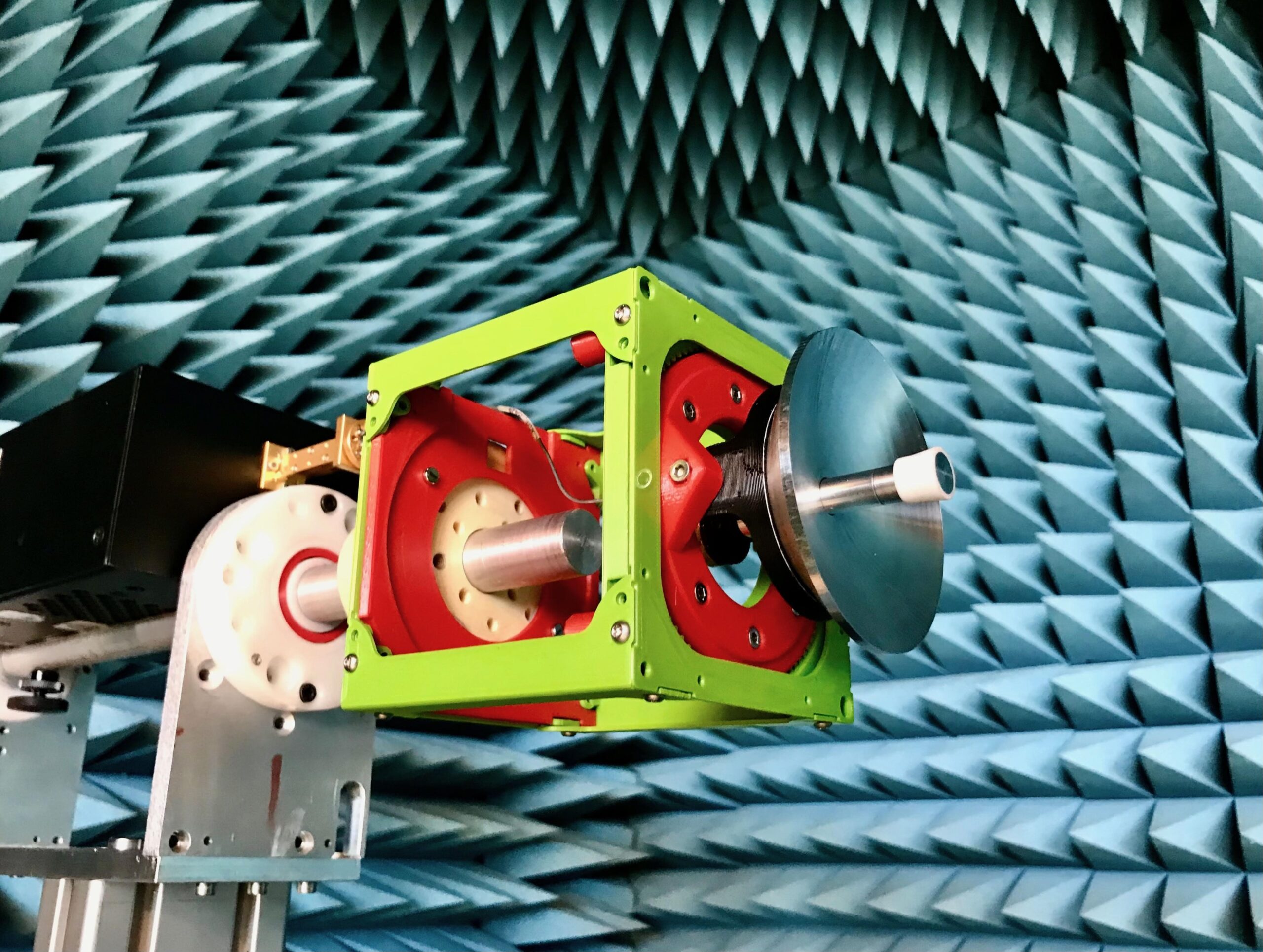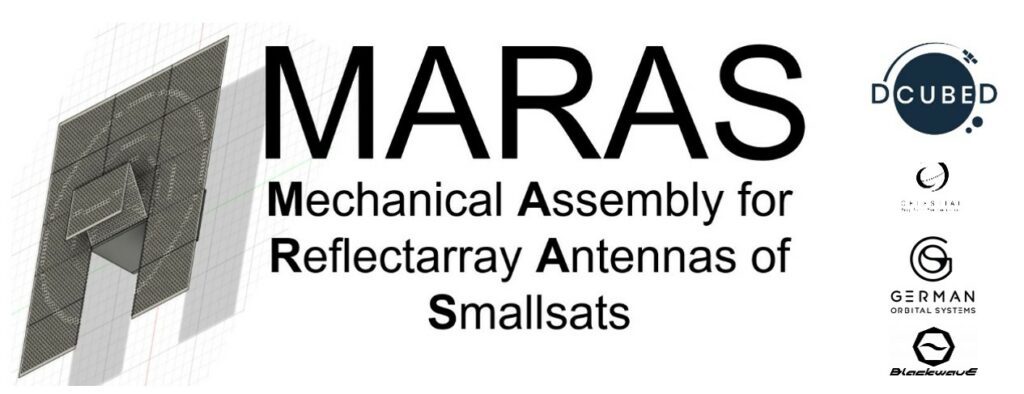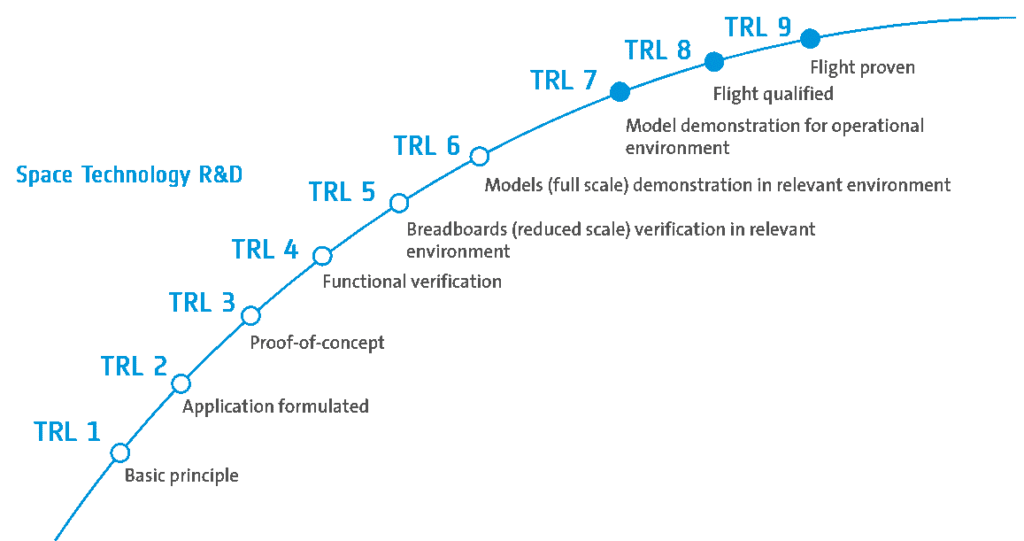
Project MARAS: Dcubed to develop CubeSat reflector antennas
Published on Tue, 24.01.2023 – 17:29 CET in R&D, covering DCUBEDFor some time now, the trend in satellite manufacturing has been toward miniaturization. Many of the satellites launched today are the size of a shoebox. A standard unit of a CubeSat measures just 10 x 10 x 10 cm. This reduction in size not only places new demands on the power supply, but also on the communications capability. ESA has now commissioned a consortium led by Dcubed to develop a deployable antenna array.
Whether Starlink, IRIS2 or UNIO, numerous new satellite constellations will be launched in the coming years. Their main task will be to provide communications services. According to specialists, more than 10,000 satellites will soon be added to the approximately 6,500 currently in space. To make these numbers a reality, the industry is undergoing a fundamental transformation. Instead of relying on expensive and complex one-offs, the satellites of the future will be mass-produced. In many cases, they will be equipped with commercially available components - so-called "off-the-shelf" components. However, the space industry will not be able to do without customized products in the future. A consortium led by Dcubed, a NewSpace startup based in Germering, Germany, is now developing one.
We are very pleased that the European Space Agency ESA has evaluated our proposal for the MARAS project as the best in Europe. This development of flat panels connected with high-precision hinges and folded in a confined space fits perfectly into our roadmap to become the preferred partner for all types of SmallSat mechanisms.
Dr. Thomas Sinn, CEO Dcubed
The main task within MARAS is the development of a deployable antenna array. This has the advantage of taking up little space during launch, but having a large surface area available in orbit. This should increase the performance of the antenna, which is essential for secure and stable communications.

ESA funding for relevant but economically unviable projects
Although there is always a need for such customized products, their development is rarely economically viable. To make them possible, ESA supports companies through the Advanced Research in Telecommunications Systems (ARTES) program. The idea is to turn investments into products or services "by supporting projects of varying degrees of operational and commercial maturity at different scales," according to ESA's website. One of the three areas funded is the support and development of new or next generation satellite telecommunications products and technologies to first flight capability.
High tech on a small scale
The MARAS project - Mechanical Assembly for Reflectarray Antennas of SmallSats - also operates within this framework. Here, Dcubed is leading the design, fabrication and testing of the mechanisms supporting a multi-panel Ka-band reflectarray antenna for a 12U CubeSat (226.3 x 226.3 x 340.5 mm). The mechanical assembly consists of high-precision hinged panels that form a planar structure when deployed, the Hold Down and Release Mechanism (HDRM) that supports the stowed array during launch, and all mechanisms required to accommodate and deploy the array. The project includes initial concept definition, analysis and breadboarding activities (TRL 5, first build of a simple prototype) through to the design and manufacture of a mechanical model that will undergo environmental and functional testing under representative conditions. According to Dcubed, this will take the subsystem from TRL 3 to TRL 6.

The MARAS consortium at a glance
The consortium consists of four companies, each bringing a core competency in a different discipline. The consortium is led by the NewSpace startup Dcubed, which brings experience in deployable structures and mechanisms. Telecommunications expertise is provided by Celestial Space Technologies GmbH, based in Nuremberg, Germany. Blackwave GmbH, founded in 2016 and based in Taufkirchen, Bavaria, complements the team with its structural expertise. Last but not least, German Orbital Systems GmbH, based in Berlin, supports the team with its expertise in satellite missions.